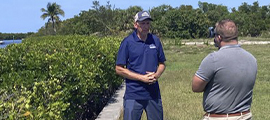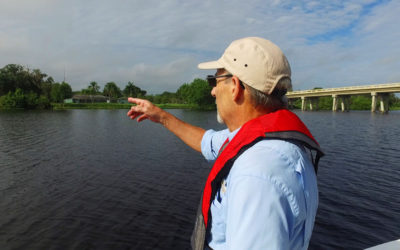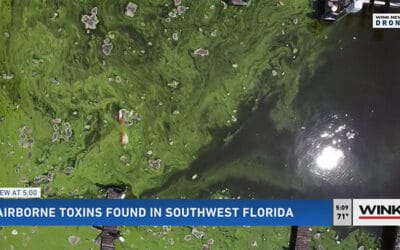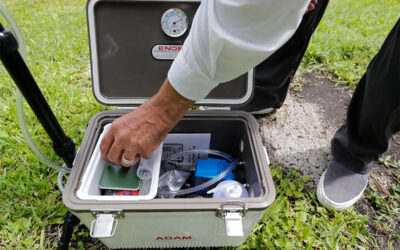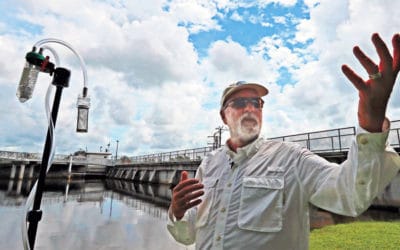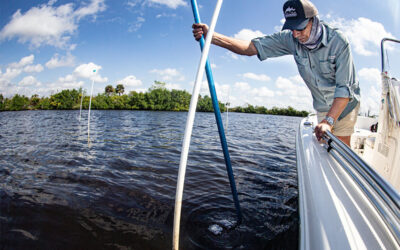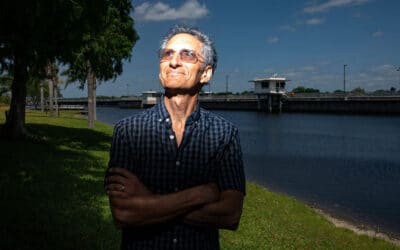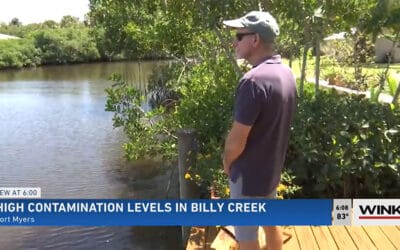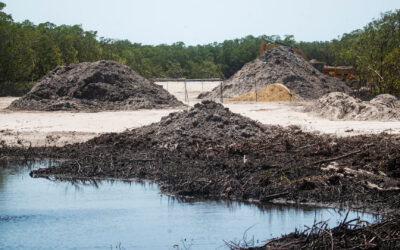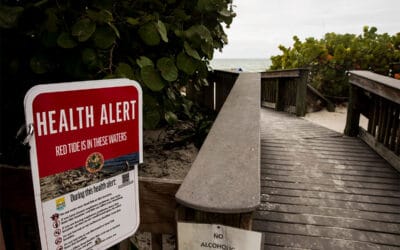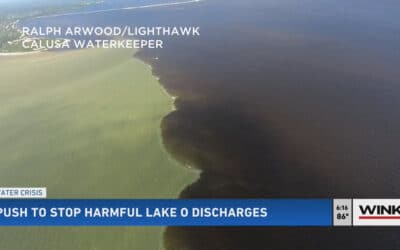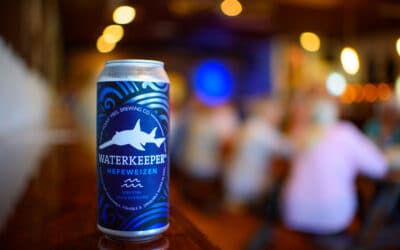Calusa Waterkeeper
In the News
John Cassani Named Best Clean-Water Champion by Florida Weekly
Calusa Waterkeeper John Cassani has won the Florida Weekly’s Best Clean-Water Champion award before, and if we’re lucky he’ll win it again in the future rather than retiring.
Research Finds Airborne Toxins in Southwest Florida
There’s new information about airborne toxins in Southwest Florida as research expands. Concerns are growing about the impact on the community and the air we breathe. The Calusa Waterkeeper set up air samplers in various locations around Lee County last year after the red tide and blue-green algae outbreak in 2018.
Initial SWFL Study Finds Water & Air Pollutants could cause grave Brain Disease
A first-of-its-kind field study of Southwest Florida air and water didn’t find widespread cyanobacteria toxins however, it did find several neurotoxins as well as three forms of BMAA, a neurotoxin linked to grave brain diseases.
Collaborative Research on Airborne Toxins from Harmful Algal Blooms in Southwest Florida
Calusa Waterkeeper and Wyoming-based Brain Chemistry Labs collaborate on a groundbreaking device to research airborne toxins from harmful algal blooms utilizing the most sensitive technology available for detecting harmful algal bloom (HAB) toxins,
Advocates Push for Fixes as Critically Important Seagrass Continues to Vanish
When legislation that would have let developers destroy seagrass in exchange for mitigation credits died with Florida’s 2022 session last month, many environmental advocates were relieved. What Calusa Waterkeeper John Cassani wants to know; “If water quality decline underlies seagrass loss, then why would continual planting change anything?”
Advocates Working to Change the State Constitution to Ensure Floridians have a Right to Clean Water
A group of clean water advocates has announced a drive to get the “Right to Clean and Healthy Waters” added as a state constitutional amendment on the 2024 ballot. To qualify, the amendment needs 891,589 signed and verified petitions.
Calusa Waterkeeper Finds High Levels of Bacteria in Billy’s Creek
Billy’s Creek isn’t clearing up after years of problems. The Calusa Waterkeeper says there’s a high level of contamination in areas known for being a health concern. Every time anyone touches this polluted water they’re at risk.
Siesta Isles Neighbors Promise Continued Fight Against Mangrove Clearing near Bunche Beach
A legal petition filed by neighbors concerned about mangrove removal in the Siesta Isles development was dismissed. Petitioners say they’re already planning another round and enlisted environmental attorney Ralf Brooks to help stop the clearing, which they say had overstepped the bounds of the project.
DeSantis’ Algal Bloom Experts Suggested Water Pollution Solutions but Lawmakers did not Listen
Florida’s Blue-Green Algae Task Force gave lawmakers a C average on adopting the scientists’ solutions to curb and clean up water pollution that ignites toxic blooms. The five experts Gov. Ron DeSantis appointed to the panel say lawmakers largely aren’t acting fast enough.
Study Shows Nitrogen Flows Systematically Intensify Red Tide Blooms
A new University of Florida study with two nonprofit research partners shows clear ties between nitrogen from human activities and the longevity and severity of the saltwater harmful algal blooms as published in the academic journal Science of the Total Environment.
Florida Lawmaker Wants to Stop Lake Okeechobee Water Releases
A Florida lawmaker is working to stop harmful discharges that cause blue-green algae in our canals. Representative Brian Mast introduced the Northern Estuaries Restoration Plan Act focusing on ending discharges from Lake O into coastal estuaries.
Calusa Waterkeeper 2022 Annual Meeting and Launch of Collaborative Beer
Calusa Waterkeeper spent a fun night at our annual meeting, debuting a new collaboration with Point Ybel Brewing Co., announcing our slate of board officers, and recognizing individuals who go above and beyond to protect and restore water quality.

















